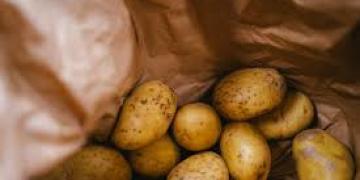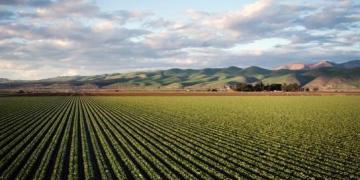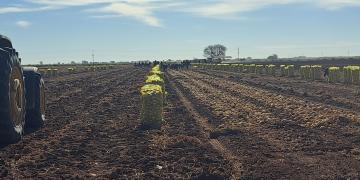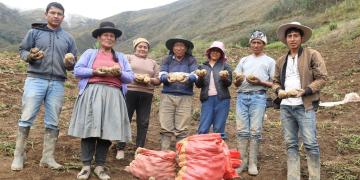Europa: NEPG: Climate change will reduce the total potato production in Belgium, Netherlands, France and Germany by 7 to 11 % despite an increase
During its last meeting prior to Potato Europe 2022, the North-western European Potato Growers (NEPG) estimates that total potato production in the NEPG zone (EU-04; Belgium, Netherlands, France and Germany) will be down by 7 to 11 %.
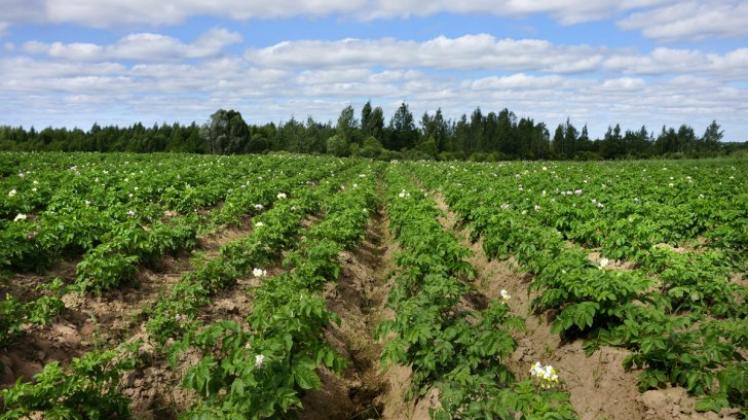
Probable final hectareage of the NEPG zone (EU-04) in 2022 will be 510.938 ha, an increase of 3,2% in comparison with last year, and an increase of 1,7 % compared to the 5-year average. Dutch growers planted 7,7 % ha more potatoes compared to 2021.
Depending on the growth during the remainder of the season, overall production should end up between 20 and 21 million tons. After a long and unusually dry and hot summer, potato production has been reduced throughout the NEPG zone.
Situations vary between countries and regions, with Belgian and French farmers most affected (around a 20% reduction for the Belgian farmers). Dutch were much less affected, particularly those North of the great rivers where more rainfall was recorded. Some farmers will not be able to deliver their expected contracts due to low yields.
Summer 2022 will be recorded as a difficult and a very costly year, not only because yields per ha are low, but also because energy and irrigation costs were much higher. The heat waves we had throughout the summer will result in a number of quality and storage issues.
There are reports of too high underwater weights (dry matter content), too small tubers and even more worrisome, a lifting of the dormancy. Even if rain comes to better soil situations and harvesting conditions, bruising could be a problem while lifting.
Early germination in storages will also render upcoming storage season difficult and more expensive. Weight loss and wastage levels (due to among other things bruising) will probably be higher.
Unlike in 2018-19 when potatoes could be introduced from other parts of Europe (i.e. mostly from Poland), this season no potatoes will be coming from elsewhere while processor’s needs have strongly increased in the last years.
What should farmers plant or sow next spring?
Current contract prices for season 2022 – 2023 were signed early in the year, their prices were acceptable, but after the war started, and during the whole of the last 6 months, production costs have dramatically risen. Actual contract prices do not cover the additional costs farmers have been facing and are due to face in the coming weeks and months.
With free buy market stable at 25 EUR/100 kg (about 25.2 USD/100 kg) , and future market quotations for April 2023 not very much higher, farmers are very concerned about their potato income. Rising costs should be shared by the whole potato chain.
With very much higher costs (electricity, diesel, fertilizers...) and higher risks linked to climate change and the war in Ukraine, some potato farmers wonder what they should plant or sow in the spring of 2023. With no guarantees from buyers, potato producers could end up deciding to plant or sow more alternative crops.
Source
North-western European Potato Growers (NEPG)
Fuente: Climate change will reduce the total potato production in Belgium, Netherlands, France and Germany by 7 to 11 % despite an increase in hectares, according to the latest estimates of the North-western European Potato Growers (NEPG)

